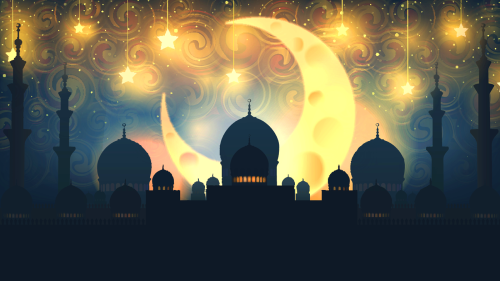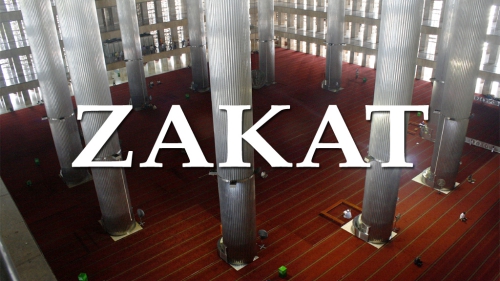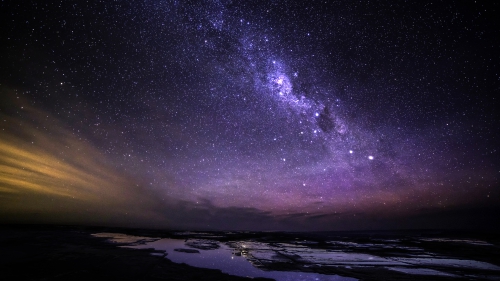Holidays Pave Path for Greater Social Religious Recognition

The sight of a tall Christmas tree looming above twinkling ornaments is common in Times Square, the U.S. Capitol, and many other famous sites in America.
The sight of the Empire State Building lighted green for Eid-ul-Fitr is not.
Not only was "America's most favorite building" lit green, but Trafalgar Square, the "heart of London" was also packed full of Muslims and individuals of other faiths for an Eid-ul-Fitr gala.
The word "Christmas" is obviously part of mainstream Western culture and more recently in our history the holiday of "Hanukkah"; now many people can recognize a menorah or have enjoyed the taste of a latka. But comparatively few in the West know about the main Muslim holidays, Eid-ul-Fitr (Festival following the Muslim holy month of Ramadan) and Eid-ul-Adha (commemorating Prophet Abraham's piety).
In the past few years though, America for example has recognized its large Muslim population by issuing the Eid stamp and marking the dates of the holiday in calendars. To those Muslim immigrants from countries that have been recognizing Eid, this holiday is the highlight of the year in their homeland, pervading every aspect of life in its duration. The West's going green is a positive, welcoming gesture to those immigrants.
This gesture is even more important for the vast population of Muslims born in the West; America, Europe, and Australia's efforts to recognize Eid has created a unique Muslim-Western Eid tradition. This year a Muslim-American Eid tradition of a green Empire State Building and a Muslim-British tradition of Eid in Trafalgar Square were established.
For years, Muslims in the West have had to celebrate their most important religious holiday in America with teachers who did not know why their Muslims students should get a day off from school, employers who did not understand why their Muslim employees needed a day off from work, and friends who did not know why their Muslim comrades were celebrating a holiday they hadn't even heard of.
The West's recognizing Eid and therefore its Muslim population by lighting green reflects a broader trend in the West to accept Muslims into the folds of mainstream society. Canada recently aired a hit comedy series, "Little Mosque on the Prairie," and the second series is airing now. "Aliens in America", a comedy about a Muslim foreign exchange student, is also on air in America.
Of course, in some areas Muslims have the advantage of a much longer history and a larger proportion of the population; in Britain for example, Muhammad is second to "Jack" as the most popular name for baby boys, indicating how something "very Muslim" before (the name Muhammad) coincides with "what is British" - shifting the cultural paradigm to include a newer segment of the population.
I have highlighted Britain, Canada, and America specifically for their traditional role as powerful countries and representatives of a free and open West. However, there are other countries in the West who ought to follow the examples of their British, American, and Canadian counterparts.
For example, France has the largest percentage of Muslims of any country in the EU (like other European countries Islam is the second largest religion there), yet it is notorious for its discrimination and restrictions on religion against the French Muslim population and this past Eid-ul-Fitr exemplified one of the problems. The Paris mayor had to close three streets across the capital because only a small proportion of French Muslims could fit into the mosques and the streets teemed with Muslims praying the Eid prayer. "Authorities have not provided appropriate places for the followers of the second religion in France," according to one French observer of this spectacle. French Muslims have had to pray in what are called "basement mosques." Eid mirrors the larger problem of a French society full of tension.
A 1905 "secularism" law established that the only official holidays in France would be those for Roman Catholicism, the official religion of France. How excluding other religions for the sake of one is deemed an appropriate separation of church and state is still unclear to me. A proposal to recognize a Muslim holiday and a Jewish holiday was deemed "un-secular," meaning the Muslims, Protestants, and Jews of France are held up to secular regulations while the followers of France's official religion are not.
It is hoped that France and countries with similar intolerant stances toward their large Muslim populations will learn from the examples of America, Britain, Canada, and the many other Western countries who enjoy much better interfaith relations because of their integration of the Muslim tradition into their own cultural milieus. The increasing diversity in the West is a fact, and some countries have accepted it to a greater extent than others, realizing that it is ethically, economically, and socially the most prudent course to take.
The recent Eid holidays in the West highlight the creation of a unique Muslim-Western tradition that eradicates the misconceived dichotomy between being Muslim and Western. The Empire State Building's being lighted green, Trafalgar Square's crowded Eid gala, and France's street's teeming with worshippers indicates the presence of Islam in the West and the various degrees to which Western countries have reacted to this real and growing presence.
Whether certain Western countries are facing reality or not, there is no doubt that Muslims have become a part of the West, and the most realistic option is to do what the Empire State Building did and go green - Western style.
NAFEES SYED is a student at Harvard University majoring in Government. She is on the Harvard Crimson Editorial Board and an editor of the Harvard-MIT academic journal Ascent. She is also a Civil Liberties Policy Group Chair at the Harvard Institute of Politics and active in interfaith organizations.

















